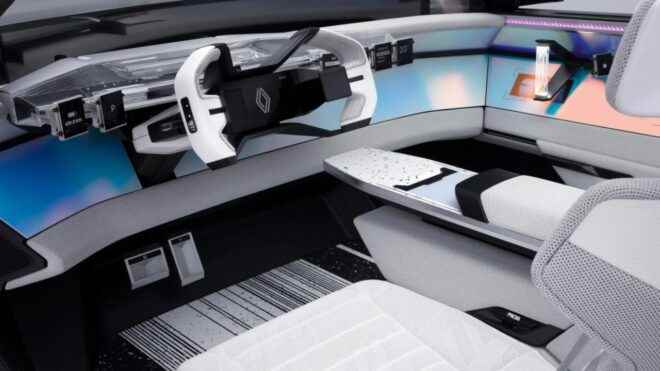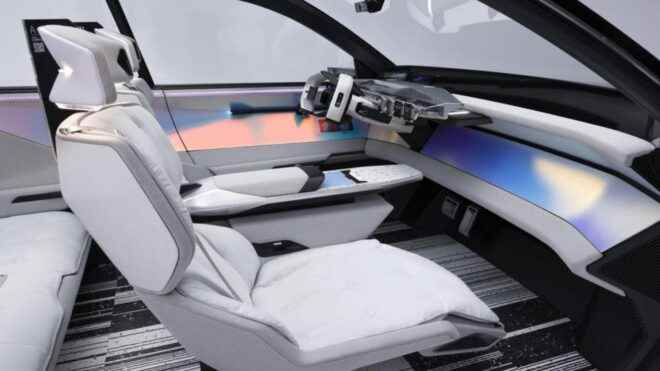Renault Scenic Vision, which shows a second class transition after Megane E-Tech, sends a message to the new era with its design and infrastructure dynamics.
Following a road map that does not break ties with its past during the transition to full electrification, Renault continues to use its old names in its new models. In this process, the French manufacturer, which attracted attention by promoting Megane to the SUV class, will make a similar segment transition with Scenic. Renault Scenic Vision, which was introduced minutes ago, is a very serious preview for the new SUV model that will be put into mass production in 2024. Carrying the Scenic, which has taken its place in our minds as an important MPV model with its history dating back to the early 90s, to the new era as an SUV that will be positioned above Megane E-Tech, Renault displays an approach that will make a name for itself in the design side. Clarifying this issue regarding the vehicle, Design Chief Gilles Vidal clearly stated that the lines on the exterior will be largely preserved in mass production.
YOU MAY BE INTERESTED
Renault Scenic Vision differentiates with hydrogen fuel detail
The Scenic Vision project, which shared many important technical data with the promotion, will be positioned significantly above Megane E-Tech in terms of dimensions. Coming with a length of 4,490 millimeters, a width of 1,900 millimeters and a height of 1,590 millimeters, the vehicle is 280 millimeters longer, 120 millimeters wider and 85 millimeters higher than the SUV dynamic electric Megane. The fact that the vehicle is positioned 135 millimeters further on the wheelbase will create a radical effect especially in the interior living area.
YOU MAY BE INTERESTED
We often mention how important it is for electric cars, which are at the forefront with their environmentalist role, to complement this scope with the production process and the materials used. The information shared by the Renault team at this point in the Scenic Vision project is ambitious enough to be evaluated in a separate bracket. Almost all of the materials in the cockpit of the project, in which 70% recycled materials are used, bear traces of the recycling philosophy. The fact that the vehicle can be recycled at a rate of 95 percent, including the battery, is extremely important for the process after the end of its useful life. How long these high percentages given in the concept will be preserved in the vehicle ready for mass production will be among the points we are curious about.
YOU MAY BE INTERESTED
Scenic Vision, which is announced to be built on the CMF-EV platform in 2024, when it will go into mass production, is in a common position with other models of the family, including Nissan. When we combine this scenario with the Nissan Ariya, it is possible to say that a range of up to 482 kilometers is possible. The point that distinguishes the project from all other members of the family is that a hydrogen fuel system was considered as a range extender. With the use of planning in mass production, the total range is expected to reach 800 kilometers. When we take the Ariya as a base on the engine side, it is possible to highlight the power values of 215 horsepower in the single-engine model and 389 horsepower in the twin-engine model.

